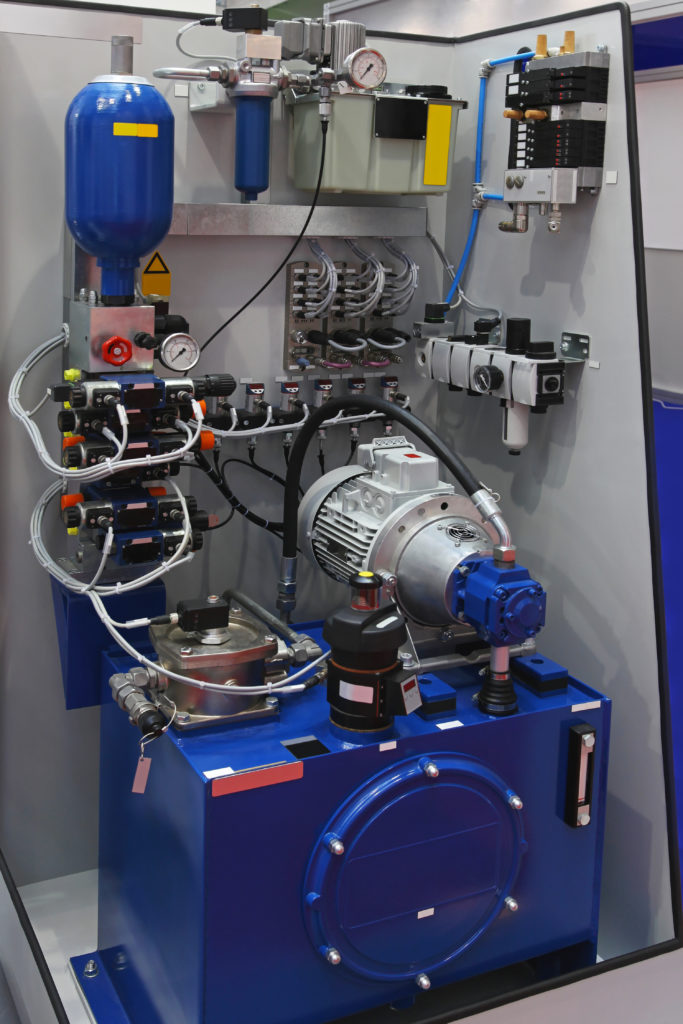Why Is My Hydraulic Pump Failing?

In many factories, the hydraulic pump is the heart of the operation — and hydraulic pump failure can cause huge problems. But why do hydraulic pumps break? In order to avoid hydraulic pump failure, it’s helpful to know what some hydraulic pump failure causes are.
How to Know If Your Hydraulic Pump Is Failing
Before getting into the reasons hydraulic pumps break, it’s important to know the signs that your hydraulic pump is broken or in danger of breaking. Some of these signs include:
- Noisy System: All mechanical systems make some noise, and hydraulic systems are no exception. But if you are hearing very loud banging or knocking, there’s a good chance that your system is experiencing aeration or cavitation, which could lead to pump failure.
- High Temperature: If your hydraulic system is exceeding the recommended temperature level of 82 degrees Celsius, this could be due to a buildup of debris in the filters preventing the system from dissipating heat. This is a problem you will want to address quickly, as high heat can damage your system.
- Slow System: If your system isn’t operating as quickly as it’s supposed to, you definitely have a problem. A slow hydraulic system means a loss of flow, which typically means internal leakage.
Hydraulic Pump Failure Causes
The major cause of hydraulic pump failure is called fluid contamination. This is an invasion of the hydraulic fluid by foreign materials. Hydraulic pumps and valves are only designed to carry hydraulic fluid, and anything else in them will damage the system, especially since this foreign debris may remain in the system and continue to damage the valves and pipes.
Other situations which can cause the hydraulic system to fail include:
- Aeration: Air in the hydraulic fluid can create problems when put under pressure by the pump. When this happens, they can implode and dislodge debris, causing contamination and raising the temperature inside the pump.
- Cavitation: Cavitation is a situation where the hydraulic fluid doesn’t fully take up the space in the pump because of unusually high fluid viscosity, an intake line that is too long or an overfast pump, among other reasons. It can lead to problems similar as aeration.
- Excessive Heat: An overheated hydraulic system can cause some massive problems for your hydraulic system. It can damage seals, degrade the hydraulic fluid and otherwise compromise the system.
- Overpressurization: Hydraulic pump systems are very sensitive and should only operate under specific conditions, including precise pressure levels. Exceeding recommended pressure levels puts undue pressure and wear on the system and can cause it to fail more quickly.
How to Avoid Hydraulic System Failure
The best way to avoid hydraulic system failure is to keep your system clean. Remember: fluid contamination is the main precursor to hydraulic system failure, so keeping those contaminants out of your system is your best chance to maintain healthy hydraulics. This means high-quality filters in your system that you inspect regularly and change when necessary.
The other major way to keep your hydraulic system up and running is by keeping the components cool. An overheated system can result in real problems, and you may not notice the effects until it is too late. You’ll also want to make sure your system is operating under the right pressure specifications.
A well-maintained hydraulic system can last a long time and be extremely efficient. Although there are many problems that can occur with a hydraulic system, most can be avoided with proper care, and the benefits of having a good hydraulic system for your business can be great — well worth taking good care of your system.
Part of that care is taking quick action when necessary. If you suspect that there is a problem with one or more components of your hydraulic system, the best thing to do is have a professional inspect it and repair any faulty parts that are failing or at risk of failing. The longer you let a hydraulic system problem go without addressing it, the worse the failure will be when it does happen.
Global Electronic Services has factory-trained, certified technicians who are well-versed in hydraulic systems and hydraulic problems. If you’re delaying repairing your hydraulics because you’re afraid of taking them offline, you should know that Global Electronic Services can complete your repair in a matter of days. For more information, call 877-249-1701 or contact Global Electronic Services online.
Be sure to visit us online at gesrepair.com or call us at 1-877-249-1701 to learn more about our services. We’re proud to offer Surplus, Complete Repair and Maintenance on all types of Industrial Electronics, Servo Motors, AC and DC Motors, Hydraulics and Pneumatics. Please subscribe to our YouTube page and Like Us on Facebook! Thank you!
